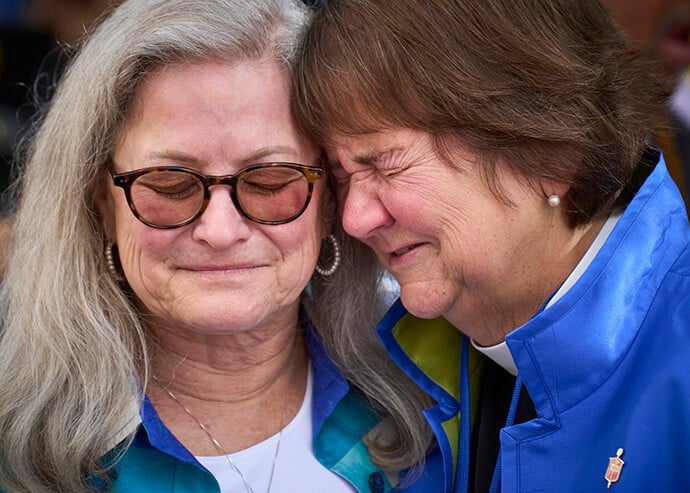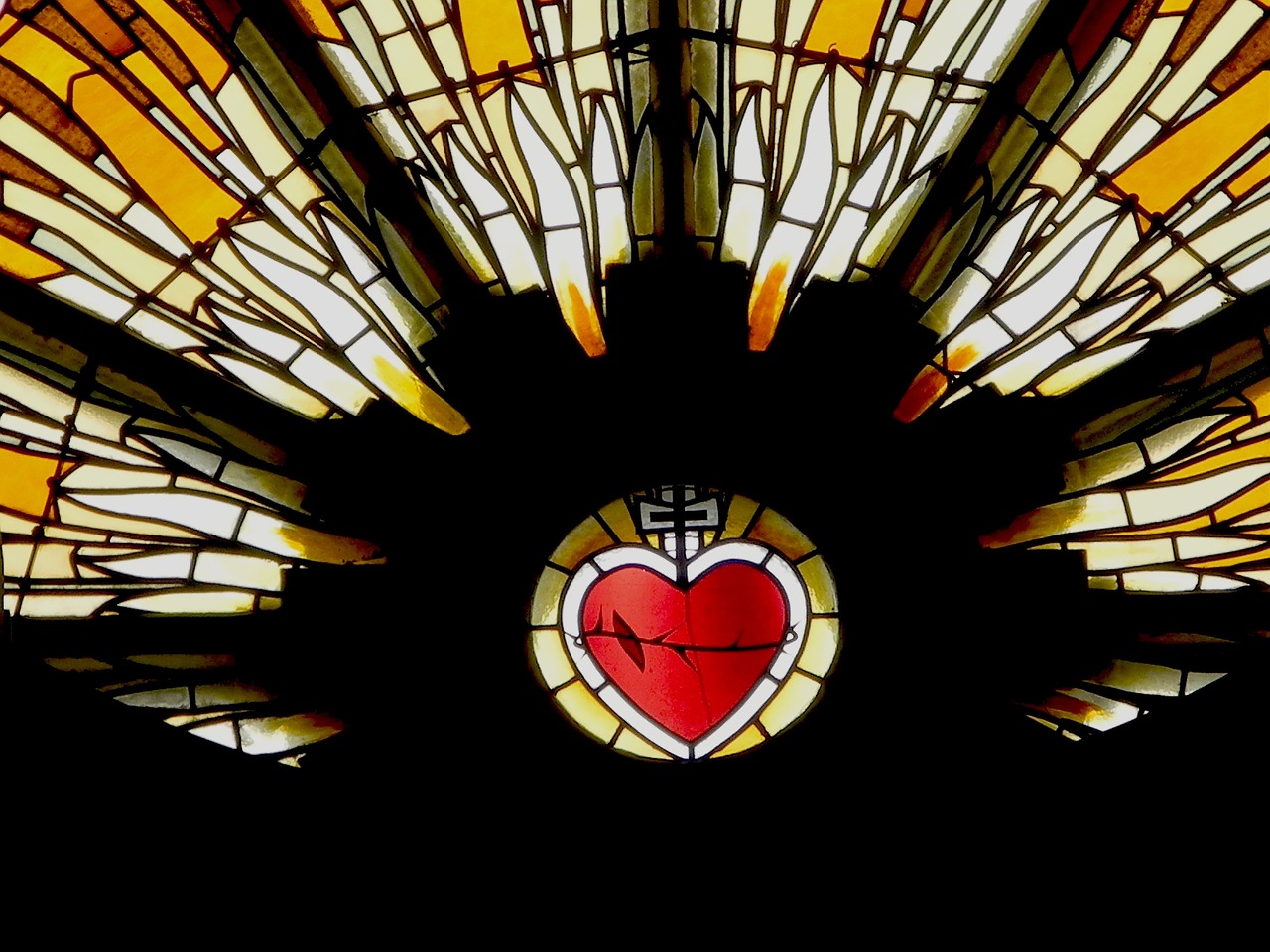The long-awaited United Methodist Church Worldwide General Conference took place last month. With it came a historic vote to lift a decades-old ban on allowing homosexual clergy.
Despite years of heated positioning, theological debate, and an entire denominational split of over 7,000 churches, the United Methodist Church welcomed LGBTQ+ clergy to the flock with a resounding 692-51 vote (93%) among UMC delegates.
The United Methodist Church News Service reported the vote was counted “without debate.” Over 20 contested rules were eradicated, including the ban on gay clergy and the penalties for holding same-sex marriages in their churches. Following the vote, delegates were seen clapping and singing, hugging and crying “in a mass release of joy.”
It was 1984 when the collective church banned “self-avowed practicing homosexuals” from becoming clergy or leaders of a local church. That year’s General Conference also listed officiating same-sex unions on “a list of chargeable offenses that could result in a church trial.”
Four decades later, delegates and observers in attendance recall the entire plight for LGBTQ+ recognition.
According to the UMC News report, Bishop Karen Oliveto, the denomination’s first openly gay and married bishop, spoke up initially. Over 40 years ago, Oliveto was in the process of being ordained while keeping her sexuality secret so her faith could be public.
“I have loved this church, even when it didn’t quite know how to love me back. I loved it because it was a vessel of God’s grace, in spite of its flaws,” she said. “I loved it still even when it suddenly made God’s love conditional through harmful language about LGBTQ people and the way it sought to limit our role in its life and ministry.”
It’s About Time for LGBTQ+ United Methodist Church Faithful

Although the ban against LGBTQ+ clergy has been four decades in the making, the official timeline for “self-avowed practicing homosexuals” to gain that recognition reached past 1984. The United Methodist Church released a comprehensive timeline detailing the LGBTQ+ journey since 1972.
- The 1972 General Conference in Atlanta, Georgia, adopted the “Social Principles of The United Methodist Church,” which marked the first public discussion on gay rights in the Church. The “practice of homosexuality” was “not condoned.” Furthermore, it was said, “[The UMC Delegates] do not recommend marriage between two persons of the same sex.”
- In 1976, the Portland, Oregon General Conference attempted to rescind the language of 1972, which failed. A delegate vote refused the usage of church funds “to promote homosexuality.” Additionally, the “Social Principles” were revised to state same-sex unions would not be recognized as “constituting marriage.”
- Four years later, in Indianapolis, Indiana, the underscored statement was “no self-avowed practicing homosexual therefore shall be ordained or appointed in The United Methodist Church.”
- Then, 1984’s General Conference in Baltimore, Maryland, arrived permanently, creating a schism between straight and gay supporters and parishioners of the United Methodist Church.
- At the 1988 meeting in St. Louis, Missouri, the firm stance began to soften as delegates noted, “We affirm that God’s grace is available to all,” referring to gay church members and leaders.
- Twenty years removed from Atlanta, the first delegation vote was taken to consider removing Social Principles language. The Louisville, Kentucky vote was 710-238 to retain the words about homosexual practice being “incompatible with Christian teaching.” In 1996, the Denver delegation vote was 577-378.
- At the turn of the century, laypeople and Bishops united in the first official protest outside the gathering hall of the Cleveland, Ohio delegation, where 30 people were arrested for disturbing the peace.
General conferences witnessed debated language, divisive protests, and defeated votes for the next two decades. Now that history was made within the United Methodist Church, an amalgamation of vision is on the verge of occurring.
Unity Among the Flocks

Based on the Associated Press report, “The nation’s largest Methodist, Presbyterian, Episcopal and Lutheran denominations have all now removed barriers to LGBTQ participation in the pulpit and at the altar.”
Following the United Methodist Church 2024 General Conference, the U.S. Episcopalian Church (ECUSA) reignited its consideration of merging with the UMC. In 2020, the decision was up for a vote, but COVID prevented the full electorate from deciding. Another report noted that the “CUSA “called for plans to be drawn up that outline how ordained ministry will be recognized by each denomination.
“It is permissive, not proscriptive, and does not change the worship, order or discipline of either denomination,” it adds.
In addition to a potential full communion with the UMC, the ECUSA plans to converge with the Evangelical Lutheran Church in America and the Moravian Church.


